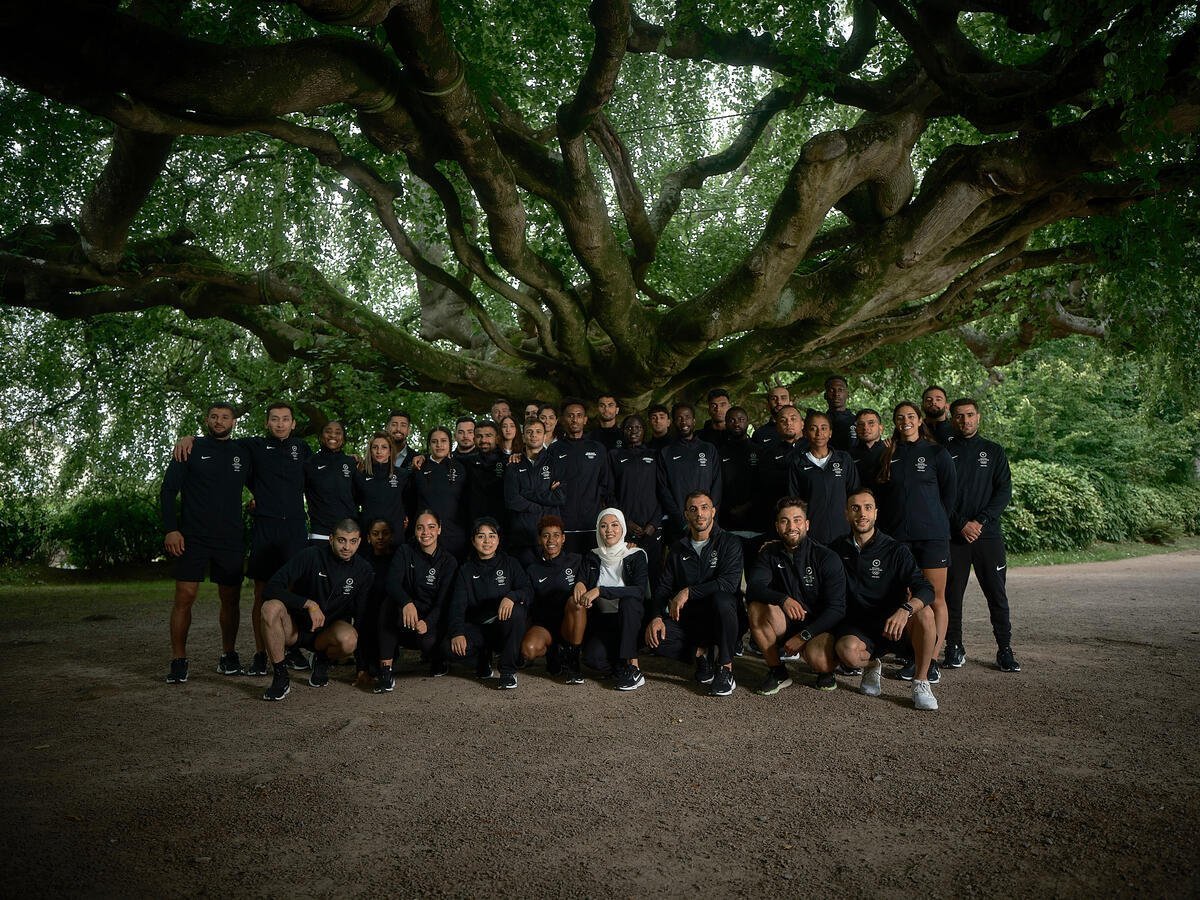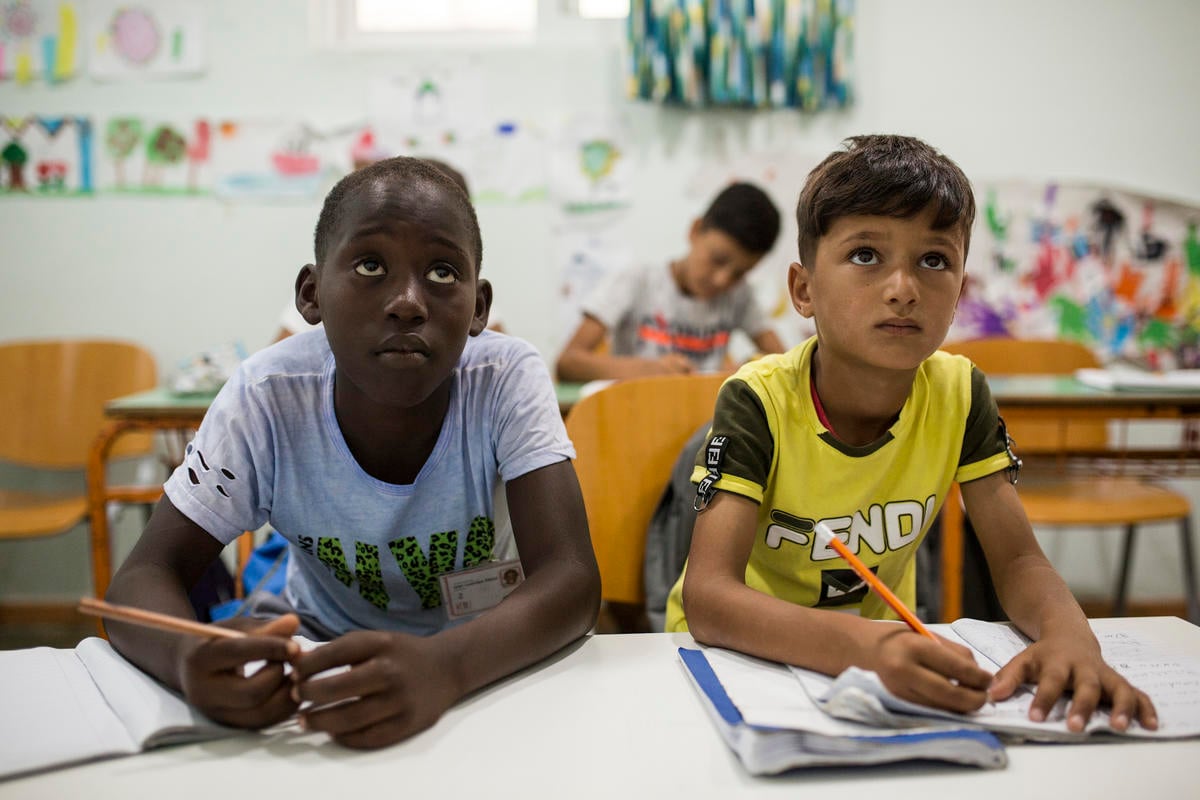Austrian housing project keeps refugees' hopes alive

Austrian housing project keeps refugees' hopes alive
In her small room in Vienna, Asira Khasalieva is rolling pastry to make gulushki (dumplings) for relatives who have recently arrived from Chechnya. They are now seeking asylum in Austria and are full of hope. She hates to tell them that she herself has been waiting three years for the Austrian authorities to answer her own asylum application.
While she waits, Asira lives in Ute Bock House. This is not just a block of flats but a place of shelter, education and encouragement founded by the distinguished Austrian philanthropist, Ute Bock.
“I thank God that Frau Bock took us in,” says Asira. “She is a very good lady. I pray every day for her health.”
Sadly Frau Bock, 74, is not as active as she used to be, since suffering a stroke. But although she is now in a wheelchair, she still lives and works with refugees in the house that bears her name.
Is she religious? Does she have a philosophy? She shakes her head. It is simple humanity that has motivated her over a long career of caring for the less fortunate. “If someone comes, needing help, I do not tell them to go and see the Pope first.”
Frau Bock, who never married, lives modestly to the point of being ascetic. She has never had a holiday; indeed she doesn’t even have a passport. She thinks fashion is a waste of time and her only luxury is to go to the hairdressers.
“How can you eat when someone else is hungry?”
She began her career in a children’s home and worked for many years with troubled teenagers. When she retired in 2002, she set up a small shelter for the homeless and asylum seekers. Some actually lived there while others were registered at the address, meaning they “existed” in the eyes of social services and could receive benefits. Frau Bock made a difference for hundreds of people.
News of Frau Bock’s good works spread. Her supporters were determined she should grow to become “too big to fail”, said her spokesman, Emanuel Hinterbauer.
Playing on the Bock name, they created a “Bock auf Bier” (Do you fancy it?) beer festival, where 10 cents on every beer were donated to Frau Bock’s shelter. This developed into “Bock auf Kulture”, raising thousands of Euros through regular events such as cabaret, clubbing and poetry slams. Frau Bock got a reputation for being “bockig” or obstinate as a goat when it came to defending the interests of the vulnerable and “bockig” tee-shirts and postcards were printed.
Then Hans Peter Haselsteiner, the owner of the Strabag construction firm, gave Frau Bock the block of flats at Zohmanngasse 28, enabling her to accommodate 80 refugee families in one building. Altogether, she houses 300 refugees in flats scattered across Vienna. She is famous among refugees, and those from Africa call her “Mama Bock”.
You could call Frau Bock a secular saint but she would just laugh at that. She’s received dozens of awards for her work but is indifferent to them all. When outgoing Austrian President Heinz Fischer himself nominated her for the prestigious Goldenes Verdienstkreuz (Cross of Merit), she joked it would have been more use to get a 20-Euro donation.
Practical and straightforward, Frau Bock tolerates politicians only to the extent that they are willing to help. She is disturbed by the new wave of populist politicians who, in her view, increase the danger of xenophobia in society.
“People complain about foreigners on public transport. This is terrible. We must find a way not to complain about them (refugees) but to help them, so they don’t get on our nerves,” she says drily.
Frau Bock remembers the end of World War II, “soldiers coming home, the concentration camps being opened…When you see how mean people are to each other today, you think, ‘didn’t you learn anything from history?’ It was as mean then as it is nowadays, or to put it another way, it is as mean now as it was then.”

There is no meanness in Ute Bock House. Food is put out daily for all to share. There are German lessons for those who want them. Fairness is the watchword.
“We all respect Mama,” says Daniel Johnson from Liberia, unemployed because he is still waiting for an asylum decision. “It gets boring and lonely. But I see her in the corridor and speak German with her. She is like a mother. Before she got sick, she used to wash our clothes for us, and if we were arguing, she would come and break up the fight.”
Back in the Chechen room, the dumplings are nearly ready to go with meat and garlic sauce. Mrs. Khasalieva’s niece and her two children draw up to the table. In Chechnya, the family made pastries and they dream of opening a konditerei in Vienna.
They are starting to see that the wait for asylum might be long and the outcome far from certain. Meanwhile they have a roof over their heads. And hope dies last at Ute Bock House.


















